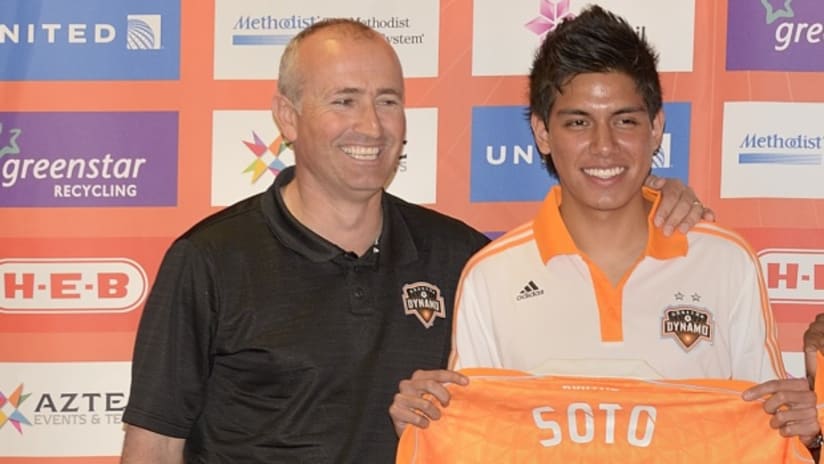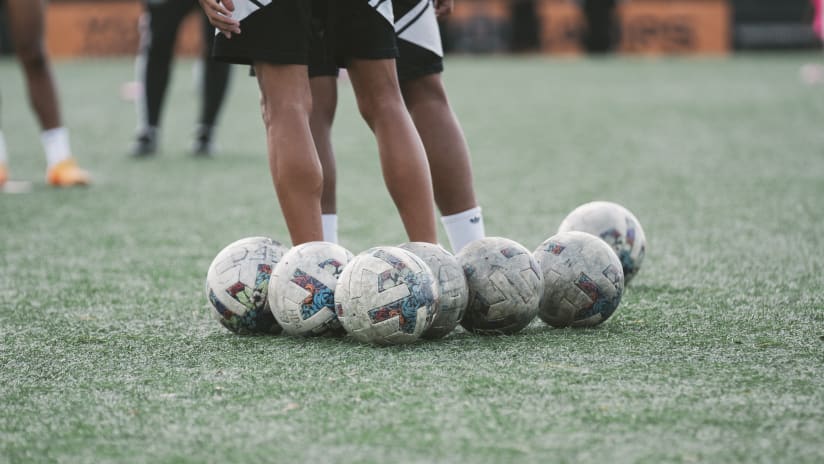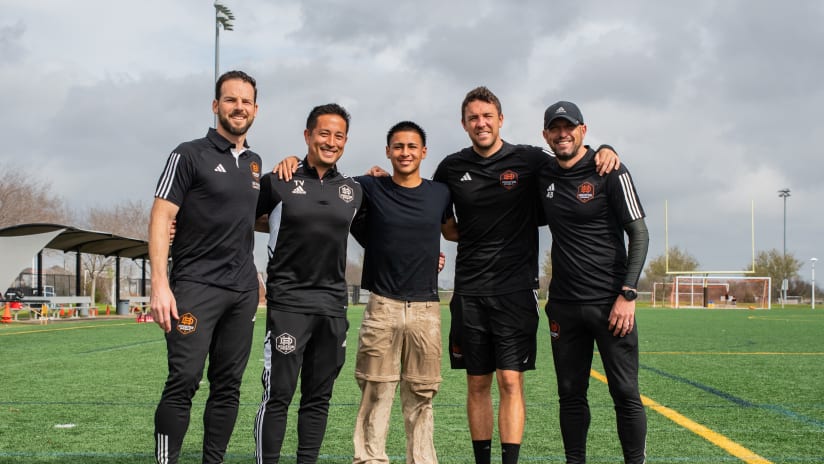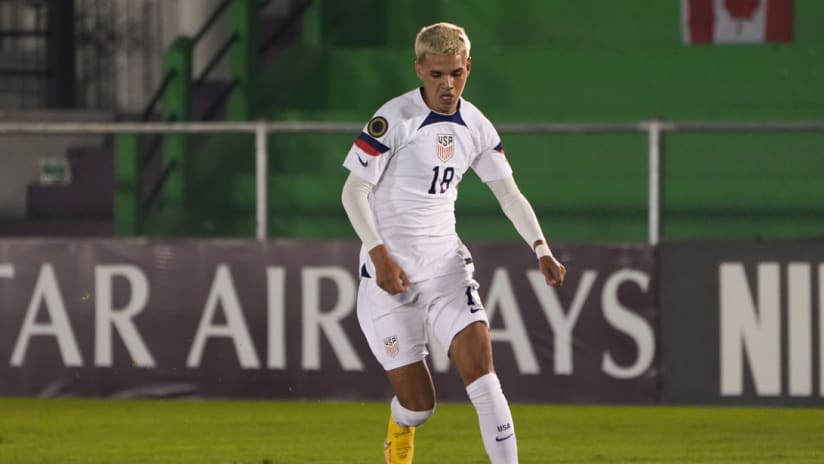Imagine being offered a professional soccer contract prior to entering high school.
Then imagine being told you had to turn it down.
That was the situation for Josue Soto when he was growing up in Monterrey, Mexico. Offered a professional contract to play for Monterrey’s U-20 team, Soto turned it down at the urging of his father, Rogelio, who wanted his son to continue his education.
“I wanted to play soccer, but my dad said, ‘No,’ because he wanted me to go to Prepa Tec, which is a very good private high school in Mexico,” the younger Soto said. “At the time I was upset, but I had a great time at Prepa Tec, so I don’t regret it. I became a better player playing for my high school team just from the environment, because it was more relaxed.”
READ: Dynamo sign two Academy players
He may have been relaxed, but Soto still brought his game on the field, helping Prepa Tec to the 2005 national championship, and thoroughly enjoyed his time there. His father, meanwhile, who has a Ph.D. in linear control, was thinking of ways for Josue to pursue both soccer and studies in the United States, where Josue had been born.
“In Mexico it’s harder to do both – play pro soccer and go to school,” Soto said. “He wanted me to do both, and the U.S. offered that option. Since I am an American citizen, he found out about ODP.”
ODP is U.S. Youth Soccer’s Olympic Development Program, created to identify top talent. To try out for American ODP programs, the Soto family would often drive 8-10 hours from Monterrey to San Antonio, Austin, or Houston for weekend tryouts and training sessions, then drive back on Sunday nights. Soto stood out enough to make the South Texas ODP team and eventually a regional ODP team, which led to a call to the United States U-18 national team camp in Carson, Calif.
“That first year was crazy, because at the beginning of the year I didn’t know if I would make the regional ODP team, and by the end of the year I was with the national team,” Soto said.
That introduction to the American soccer system wound up being Soto’s ticket to further opportunities as well. He was offered a scholarship to Campbell University in North Carolina based on his performance at a regional ODP camp, and his ODP coach – James Clarkson – was hired in late 2006 as the Dynamo’s Director of Youth Development. One of his first calls was to Soto.
“I thought it was a great opportunity to become part of a professional club,” Soto said. “Having that connection would be good, and James told me I would get a chance to train with the first team, and that was impressive to me. I didn’t think twice about it and joined right away.”
Soto’s older brother, Daniel, lives in the Houston area with his wife, so Soto was able to stay there when training with the Dynamo. It also helped that some of the Dynamo Academy’s first competitive games were in Monterrey against Rayados, allowing Soto to play close to home. He then led the Dynamo to the Dallas Cup championship game in the spring of 2007, although even now he grimaces at the thought of his missed penalty kick in a shootout, ironically on the same field where the Dynamo won their first MLS Cup in a shootout.
In two years at Campbell, Soto helped the Camels to the NCAA tournament and a school-record winning streak as a regular starter. After finishing fourth in the country in assists per game in 2008 as a sophomore, he decided to transfer to SMU to take on better competition.
In the mean time, he trained throughout the summer of 2008 with the Dynamo first team, a task he repeated in 2010 after missing the summer of 2009 due to injury. Those experiences – Soto was the only college player to make it through the whole summer each time – proved his worth to the Dynamo staff, which also kept a close eye on his college performance.
“On the first day [with the Dynamo], the pace and the fitness side of it were on a different level,” Soto said. “It was something I’d never experienced before. Those summers helped me to see what I needed to do to get there.”
After the 2010 NCAA season, in which Soto led SMU to the national quarterfinals, came to an end, Soto found himself in another unique position. He was the first player in MLS history to complete his collegiate eligibility and be offered a contract as a home-grown player, bypassing the MLS SuperDraft.
With the paperwork new for everybody, he played at the MLS Player Combine – his AdiPure team won the combine title – even while discussing options with the Dynamo. Finally, the day before the draft, the Dynamo and MLS made Soto an offer and removed his name from consideration for the draft.
“I always had a good feeling about it, thinking I would stay in Houston,” Soto said. “But it’s definitely a relief to finally sign and be part of the team.”
PHOTOS: Newest Academy signings
Josue Soto’s professional soccer career has finally begun, some seven years after his first opportunity at a professional contract. And he now has a message for his father:
“Thanks for being wise and making a great decision I couldn’t have done myself.”





